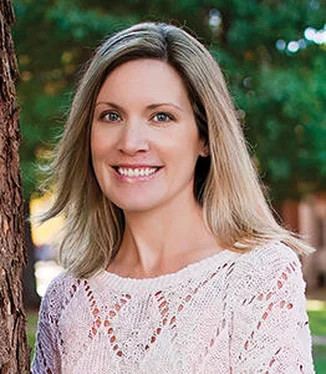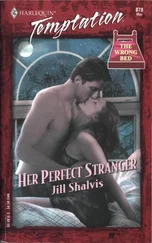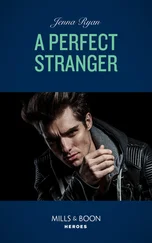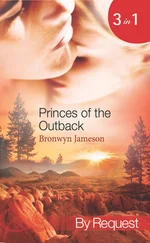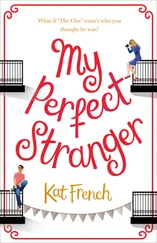This was what I could never explain to them, how I knew her deeply if not thoroughly: how she barely scratched the surface. And I don’t know if I could’ve had the same restraint.
IN THE END, AGREEINGto the early search didn’t save me anything. I didn’t have time to move the Boston newspaper, which was inside an empty kitchen drawer. I saw Kyle look at it briefly before placing it aside. I wondered if he recognized it from the night he’d spent here, if the memory hit him from the side, a reminder from an unexpected place. I also didn’t have time to hide the things I was sure Emmy had stolen; I had to believe they were small enough that they wouldn’t be an issue for me or for her.
But my cooperation led to information, which was all I had to work with, anyway. It was the thing I was most accustomed to trading for, and this was no different.
I knew, from the conversation between the officers, that they were looking for a specific type of knife: serrated-edge four-inch blade, give or take.
They took and sealed every knife in the kitchen, even those that were too small, too large, too dull or double-edged or part of a steak set. What was missing as damning as what remained.
And then they fanned out from the kitchen, lifting sofa cushions, opening closets, peering under furniture, and I felt a laugh bubble out unexpectedly.
“What’s so funny?” Kyle asked.
“Do people really do that? Leave murder weapons stuffed between couch cushions?”
“You’d be surprised,” he said.
“I should rephrase. Do people bring weapons back home to discard when they’re already someplace more convenient – like a lake?”
He stopped taking inventory of the kitchen, turned to face me. “You think it’s there?” he asked.
If it were me, I would’ve tossed it after using it. Left it to the lake or a sewer. Let nature take its course and wiped my hands of it. “Seems like that would’ve been a safer bet.”
He nodded, then continued bagging the knives.
“Are you going to drag the lake?” I asked. I doubted they would. Not enough resources in a place like this, not enough evidence to claim it might be there.
“He wasn’t killed in the car,” Dodge said from the living room, and the other officers froze. Gave him a pointed look.
“What?” Dodge said.
“Where was he killed?” I asked, seizing on the moment.
Clark Egan sighed from his spot beside the couch. “Don’t know. Not in the car, not at his room or at his place of work. And not here, it seems.” He gestured to my kitchen, my living room.
“It seems?” I asked, my voice rising of its own accord.
“The floors are dusty,” Kyle responded, concentrating on the knives on the counter. “To get blood out, you’d have to do a deep clean. With bleach.”
I stared at the back of his head. The first day they were here, looking through my house – they were looking for evidence that James Finley had been killed here, and I had no idea. They saw the container under my porch and found the bleach inside, wondering something more. The story was spinning around me, and I was too many steps behind. I wanted them to stop. Wanted to tear up the paper I’d signed. But I didn’t want to make a scene, didn’t want them to think there was something worth hiding here.
I concentrated on the facts instead. James Finley had not died in that car. He had been moved. He had been placed in Emmy’s car and driven into the lake, where he’d sat for who knew how long.
Had they imagined he had bled out on my kitchen floor with Emmy standing over him? Did they imagine a fit of passion? Self-defense? I had to see the story they were working with in order to prove it wrong.
“Have you found his car?” I asked. I remembered him inside it, rusting beige paint, a scent I must’ve imagined just from seeing him light the cigarette.
“Gone,” Kyle said. “He’d been living at the motel since May, it seems. Worked in the office for a pretty good deal on his rate. To be honest, nobody was really surprised he’d up and left one day,” he added. “Nobody had seen his car, either. They just assumed he took off.” A transient, not only working at the motel but living there. The type of person who didn’t stay in one place for long.
And now James Finley’s car was gone. Disappeared. If Emmy had done this, as was the theory they appeared to be operating under, she’d had at least a week’s head start on them. They wanted to know who she was in order to know where she might go.
“Was Emmy right-handed?” Egan asked, and I thought about it. Thought about her holding the bottle of vodka or a dusty glass. Thought about her lining up to throw a dart at the bull’s-eye, one eye closed.
“I think so. Yes. And this matters because?”
“Because James Finley was attacked from behind, by a right-handed perpetrator, and he had no defensive wounds.”
A surprise attack. Someone had crept up behind James Finley with a serrated blade already in hand and taken it to his neck in an instant, before he had a chance to fight back. Not in self-defense at all.
They continued looking for evidence, going down the hall to the bedrooms, peering into mine as well. “Wait,” I said.
“I told you, Leah,” Kyle said, though he said it low. His face was set. He looked at me as if to say, Please. Please don’t, Leah. Please call it even. As if maybe I wouldn’t notice that half of the things here belonged to me, and they did not differentiate.
I felt my nails digging in to my palms, and I felt the need to scream, to let it tear up my throat from my lungs. Pictured another version of myself standing beside me in the hallway, opening her mouth and letting it loose. Felt something settle, briefly, inside me.
I moved to the front of the house with Dodge and Egan. Dodge lifted the gnome, peered underneath, and let it drop a little too hard on the table, slightly off-center. I had an itch in my fingers to move it, to twist it the right way, to keep things as they should be.
I stifled the urge and went to the front porch for the fresh air, the clear head. But I saw a handful of people scattered at the edge of the road.
They were looking at the police cars and watching the search. People who had walked from the woods, maybe. People with vehicles parked nearby.
Someone who had heard about this and passed on the information, letting it snake its way through the public – a call to action. A trail of whispers gaining force.
The police prepared to leave, all evidence bagged and annotated, paperwork spread on my kitchen table. A pile of plastic-wrapped knives, a bunch of receipts pulled from the kitchen drawers. A lone sticky note that had been lost under the couch, in my handwriting, that said: CALL JIM.
“What’s with the receipts?” I asked.
Kyle spread his hands over the material as if they were artifacts at a museum. “Here’s what we know, Leah. James Finley, or someone at the motel, made several calls to this number in the days presumably leading up to his death. There are a few calls from here to there as well. There doesn’t seem to be any sort of knife here that looks like the murder weapon, and it doesn’t appear that any sort of crime happened in this house. But this is what we don’t know: We don’t know who she is. We can’t find a record of her working at any motel. Your neighbors can’t describe her, though they have seen her car. One man claims he’s seen her driving up the road before.”
My heart fluttered, a piece of Emmy, someone else who could bring her to life.
Kyle continued, “But there’s no paperwork in this house that belongs to her.” He tapped a pile of papers beside him. “Though I did take a picture of a few of your documents, car registration and the like, to rule them out. So, the receipts are our only lead right now. If any of these were from her, we could go to the store, trace back the time stamp, see if they have any video where we can find her.”
Читать дальше
